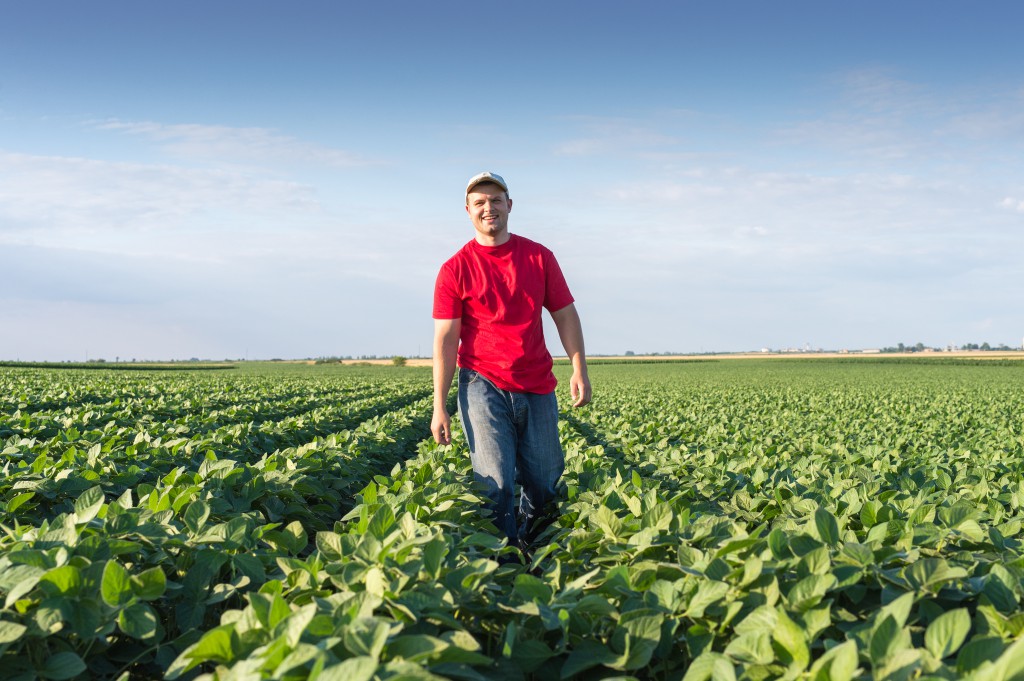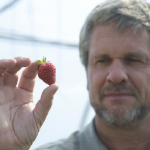Tom Baumann
Many complain that the younger generation isn’t going to come forward to run our agriculture operations, either as owners, operators, or as employees and interns, etc. And while I’ve been a member on various committees over the past 35 years, it’s true that grey-haired guys have been the mainstay of our industry since well before I got my start in it.
But recently, I’ve been noticing a change. I attended two committee meetings and one BC Young Farmers meeting where I saw young people chairing the meetings, making smart decisions and asking questions of the researchers.
And—there were many young women in attendance. Even better, the multicultural makeup of the industry was also represented well. Because of this, I mostly sat there quietly and watched it all unfold. I saw myself in these young people, asking questions as bluntly and openly as I did 35 years ago.

These young people were relevant and eloquent, with a good sense of humour but using little of the pervasive politically correct language that I feel stifles so much of our discourse these days—all in all, progress was made, ideas exchanged, decisions made.
There were a few moments when questions were asked about how decisions were made in the past and this was a perfect opportunity for me to allow the historian in me to pipe up and brief the meeting on the whys and hows.
I teach at the University of the Fraser Valley’s Agriculture Department and I find that the number of new students is growing, perhaps because they recognise the fact that there are many good jobs to be had in agriculture; whereas, other sectors may have slowed down or are simply not hiring.
The amazing fact is that in the last two years, we have seen a heavy influx of multiple cultures in our classrooms, which were previously dominated by Caucasians. Now, our class more closely resembles what our industry looks like. Finally! While the exact source of this change is not entirely clear, we know that post-secondary education is now a requirement for gaining employment in the agriculture sector, but also many international students that come from traditionally rural areas are keen on agriculture.
The old attitude that agriculture is an undesirable career mostly involving broom pushing has been so pervasive. But now the modern student looks at results—especially employability. With all the technological improvements—sometimes even led by agriculture—today’s industry is very progressive and requires much hands-on technological background and education.
Where the fields are manned by GPS-driven tractor systems, where the milking parlour becomes more robotic, where sorting belts employ electronic colour and firmness sorters, we no longer hold the view that farming is something left to country bumpkins.
Some forethought has also gone into the combining of degrees in geography, biology, chemistry and agriculture, and also offerings of agricultural business degrees, which has allowed for easy transitioning into careers in agriculture for those who were uncertain about their future upon graduation.
I don’t know how many emails and texts I field from March to July about job opportunities for students in all sectors of agriculture, but the students usually already have a job by that time. This is great news for the starting entrepreneurs and those looking for a job. And because of that new, well-educated pool of sophisticated and hard-working individuals, the industry can only benefit as well. Industry asked, we all delivered, the future looks bright. Time to step back and let them do their thing—they are prepared and willing.
[infobox title=’Tom Baumann’]

Tom Baumann has spent most of his agriculture career as a horticulturist specializing in berries. His company, Expert Agriculture Team Ltd., provides many services to others including advice, trouble shooting and aids in claim situations. Tom also teaches full-time at UFV Chilliwack as an Associate Professor in the Agriculture Department.[/infobox]












